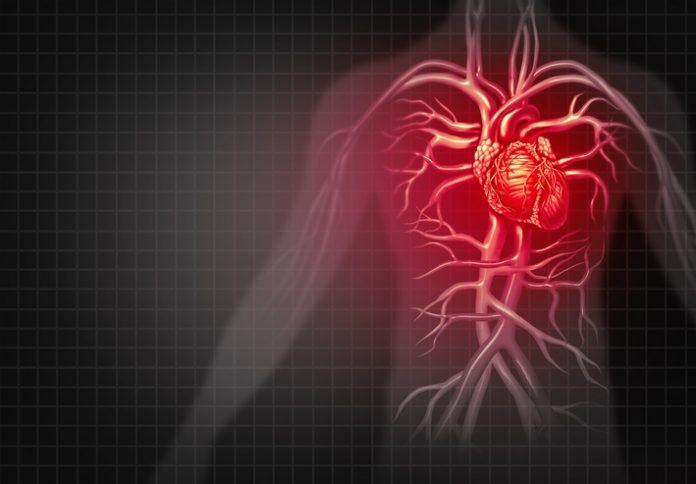
Women may gain greater cardiovascular benefits from a diet rich in potassium compared with men, according to research published in the European Heart Journal.
The study of more than 20,000 people found an inverse association between a diet rich in potassium—found in bananas, avocados, and salmon—and the risk of incident or recurrent hospitalization or death from cardiovascular events in both men and women.
Women in the highest third of potassium consumption had an 11 percent lower risk of these cardiovascular events during follow up of nearly 20 years compared with those in the lowest third of intake.
But when the comparative potassium intakes were assessed for men, their risk of these cardiovascular events dropped by just seven percent.
“The results suggest that potassium helps preserve heart health, but that women benefit more than men,” said study author Professor Liffert Vogt of Amsterdam University Medical Centers in The Netherlands.
“The relationship between potassium and cardiovascular events was the same regardless of salt intake, suggesting that potassium has other ways of protecting the heart on top of increasing sodium excretion.”
Various studies have shown that women are more sodium sensitive than men, with greater changes in blood pressure in response to sodium consumption.
While a high-sodium diet has a well-established association with blood pressure and cardiovascular events, potassium has been found protective, possibly through promoting sodium excretion in urine and normalizing extracellular fluid.
To investigate further, the researchers studied information collected on 11,267 men and 13,696 women aged 40-79 years recruited from English primary care practices as part of a population-based cohort study between 1993 and 1997.
During a median of 19.5 years of follow up, 13,596 (54.5%) participants experienced a cardiovascular hospitalization or death, including 6705 (59.5%) events in men and 6891 (50.3%) in women.
Men showed neither an association between potassium intake and systolic blood pressure, nor was there an interaction with sodium intake.
However, in women, the association between potassium consumption and systolic blood pressure had a highly significant interaction with sodium intake.
Further analysis revealed an inverse association between potassium intake and systolic blood pressure only for women in the highest third of sodium consumption.
Among women in this highest third of sodium intake, every extra gram in daily potassium consumed was associated with a 2.4 mmHg lower systolic blood pressure.
The researchers report: “The lower risk of CVD events associated with high potassium intake may in part be linked to the natriuretic effect of potassium and subsequent BP lowering.
“However, considering the lack of interaction with daily sodium intake in our study, other cardiovascular protective effects of potassium may be involved as well. These effects presumably relate to the antioxidant and vasoactive properties of potassium.”
Professor Vogt added: “Our findings indicate that a heart healthy diet goes beyond limiting salt to boosting potassium content. Food companies can help by swapping standard sodium-based salt for a potassium salt alternative in processed foods.
“On top of that, we should all prioritize fresh, unprocessed foods since they are both rich in potassium and low in salt.”













